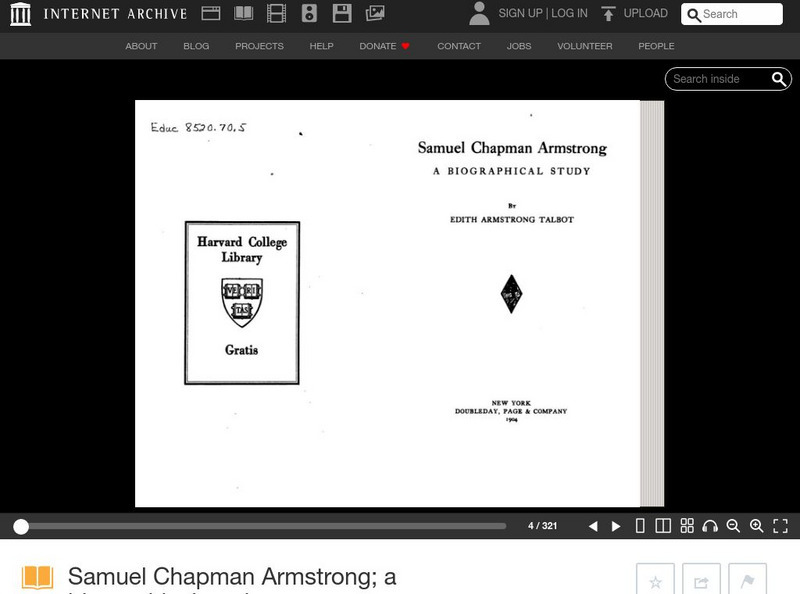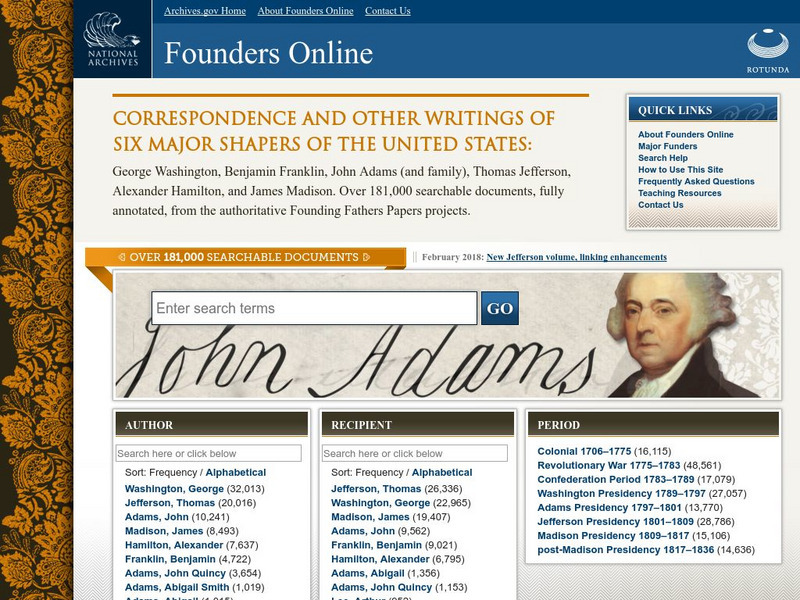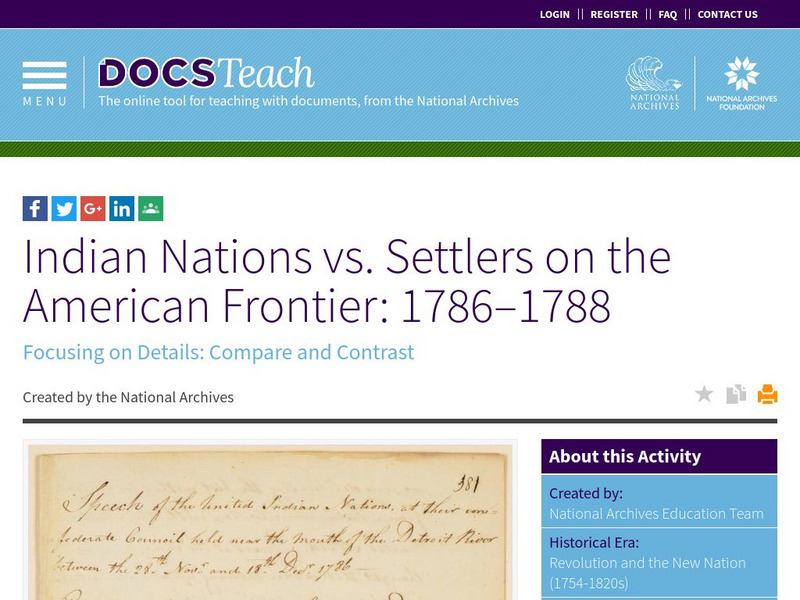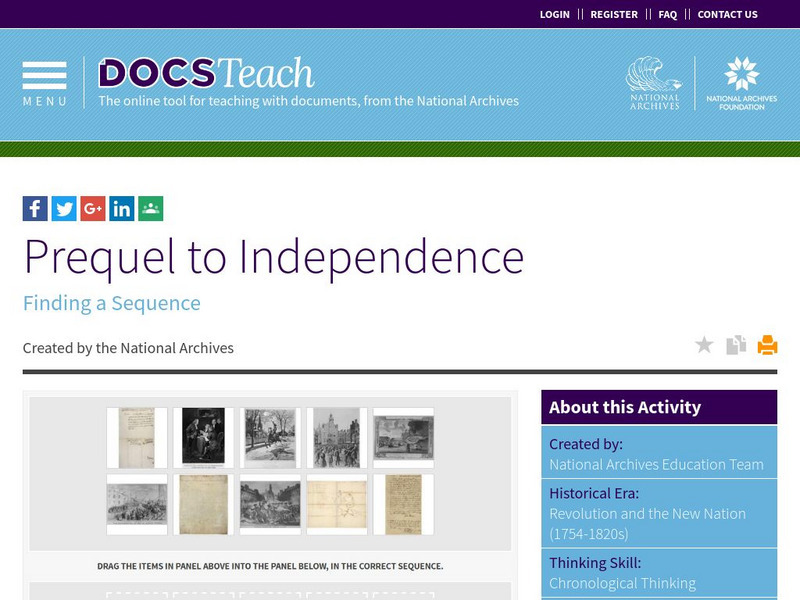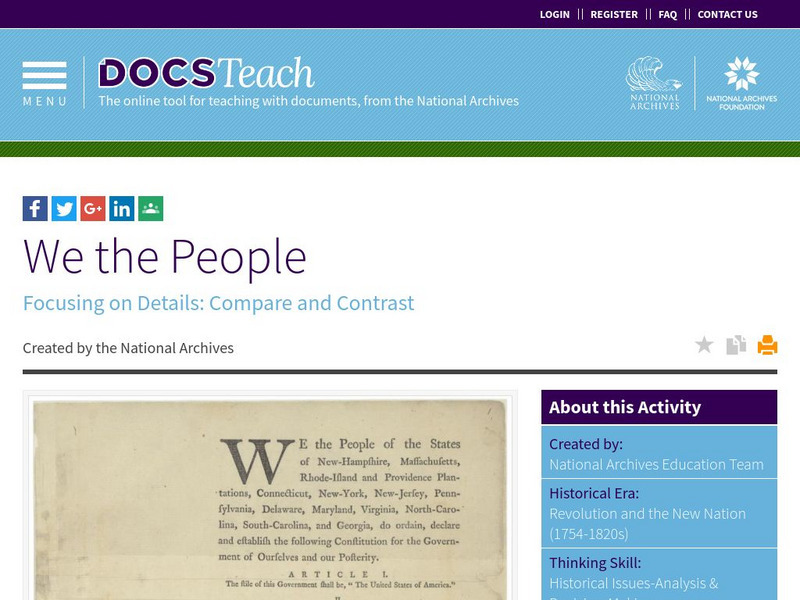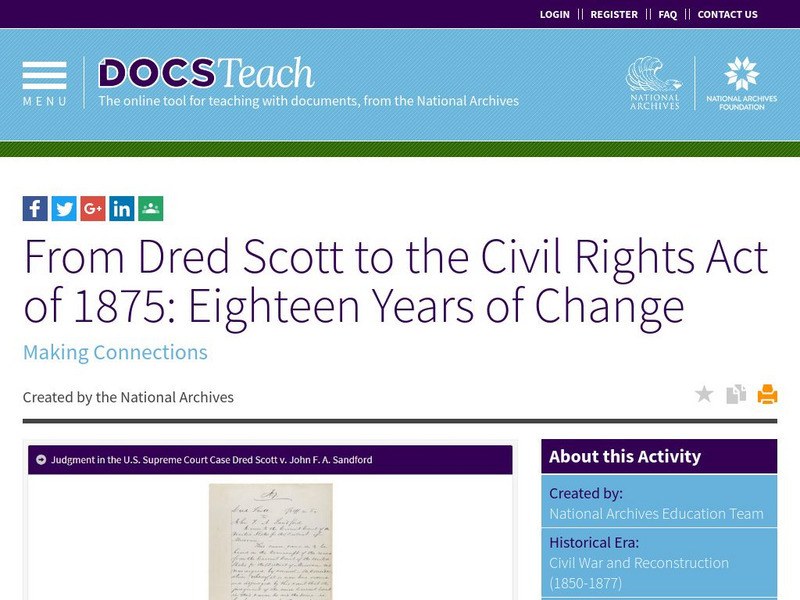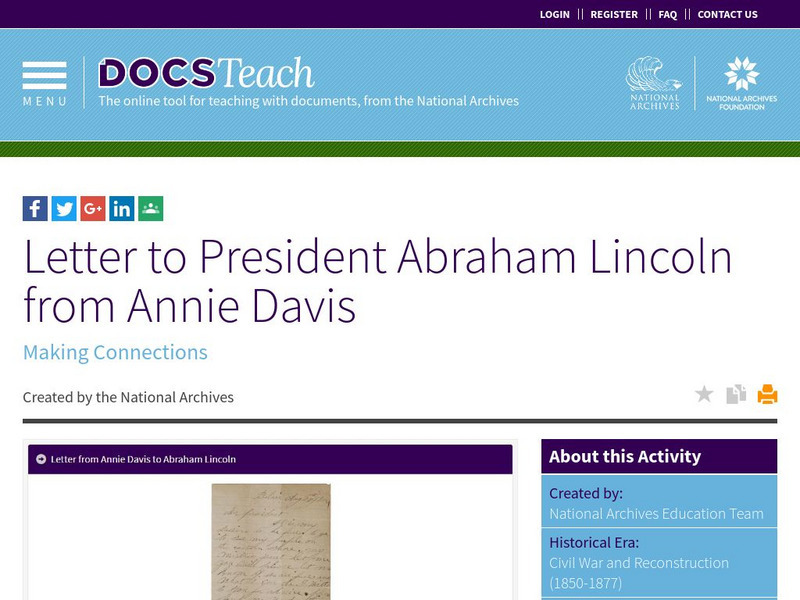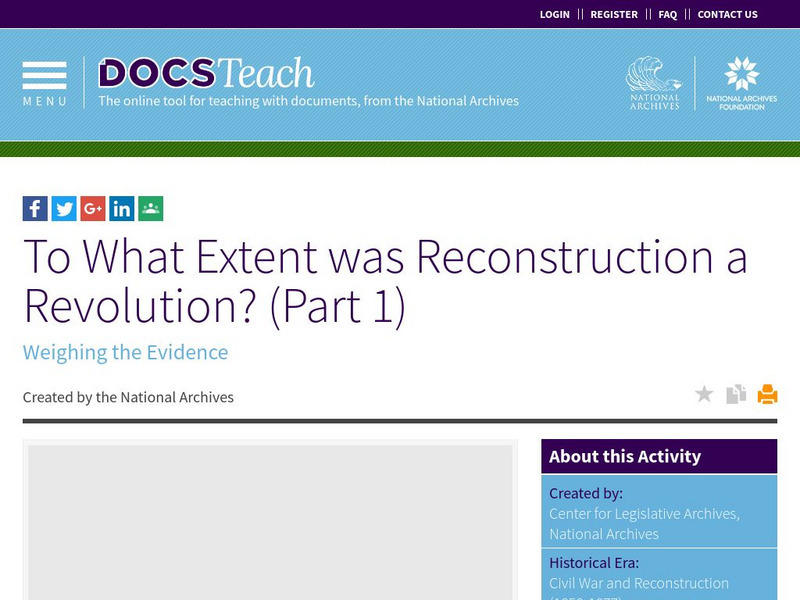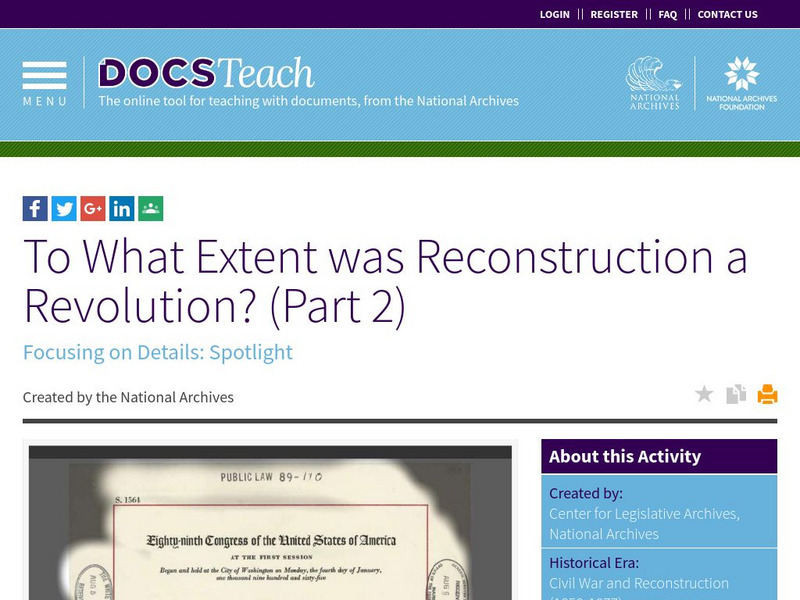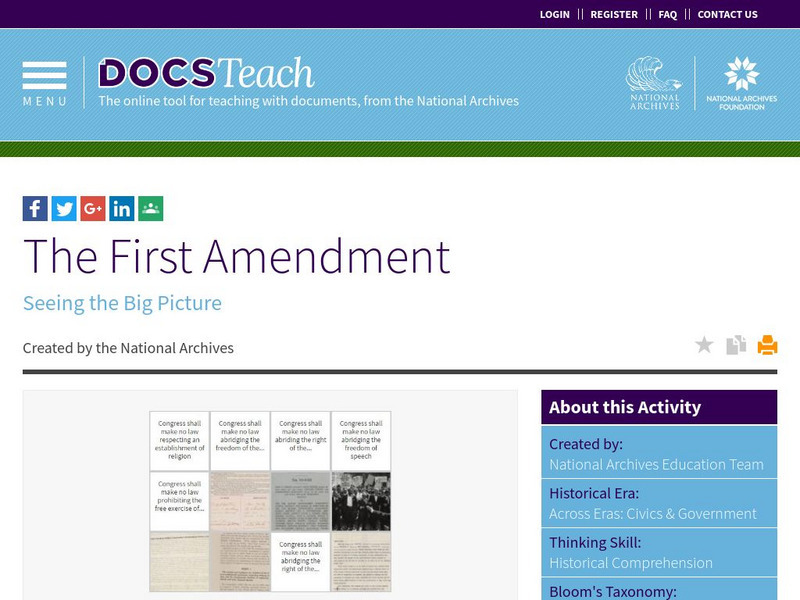US National Archives
Samuel Chapman Armstrong: A Biographical Study
A book-length biography of Samuel Chapman Armstrong, founder of Hampton Institute, a historically Black school founded during Reconstruction. The biography was written by Armstrong's daughter, Edith Armstrong Talbot, in 1904. The book is...
US National Archives
Essays, Speeches, and Memoirs of Field Marshall Count Helmuth Von Moltke
Published in 1893, this as a collection of English translations of writings and speeches by Helmuth von Moltke the Elder, one of the foremost military strategists of the nineteenth century. Many of the documents in this collection are...
US National Archives
Internet Archive: Moonwalk One, Ca. 1970
Original film [1:34:43] published ca. 1970 details the 1969 coverage and events of the Apollo 11 launch.
US National Archives
National Archives and Records Administration: Founders Online
This site provides the texts of nearly 200,000 historical documents related to six Founding Fathers, including the papers of George Washington, Benjamin Franklin, John Adams, Thomas Jefferson, Alexander Hamilton, and James Madison. The...
US National Archives
National Archives: Indian Nations vs. Settlers on the American Frontier
When the Revolutionary War ended, there was an ongoing conflict between the Native Americans and American settler in the Northwest Territory. Students will study two documents from each side of the issue and answer questions and/or hold...
US National Archives
National Archives: Prequel to Independence
Students will sequence key events leading to the Declaration of Independence by viewing primary source documents.
US National Archives
National Archives: Benjamin Franklin: Politician and Diplomat
Benjamin Franklin was the only man to help shape all the major documents that established the United States. Students will review those documents and match the correct document to its description. Upon completion, students will choose...
US National Archives
National Archives: We the People
View George Washington's annotated draft of the Constitution while discussing the ratification process. Specifically, the students will analyze changes to the Preamble of the Constitution. Critical thinking questions are provided.
US National Archives
National Archives: Lewis and Clark's Expedition to the Complex West
Jefferson sent Lewis and Clark to explore the land annexed in the Louisiana Purchase knowing that his area was already inhabited and politically complicated. Students will explore documents related to the purchase and use the map to...
US National Archives
National Archives: The Treaty of Guadalupe Hidalgo
Was the Treaty of Guadalupe Hidalgo a fair compromise to end the Mexican-American War? Students will dissect sections of the treaty to summarize and formulate a conclusion to that question.
US National Archives
National Archives: u.s. V. Amistad: A Case of Jurisdiction
Students will review the Amistad case and use passages from the case explore the concept of jurisdiction and how a case travels through the federal court system. Also, included are links to the background of the Amistad case, a...
US National Archives
National Archives: From Dred Scott to the Civil Rights Act of 1875
The Dred Scott case decided that African Americans were not citizens of the United States. However, 18 years later they would have citizenship and many other rights. Students will examine the following documents to understand how and why...
US National Archives
National Archives: How Effective Were the Efforts of the Freedmen's Bureau?
Upon being freed, the formerly enslaved people had many challenges to overcome. The Freedmen's Bureau was established to assist the newly free people. Students will examine the following documents and formulate an opinion about the...
US National Archives
National Archives: Letter to President Abraham Lincoln From Annie Davis
"Will you please let me know if I am free?" wrote Annie Davis. Annie Davis was a slave who wrote this letter to President Lincoln 20 months after the Emancipation Proclamation. To understand her confusion, examine the following documents...
US National Archives
National Archives: Oh Freedom! Sought Under the Fugitive Slave Act
What would your life be like if you had to always be running from people who wanted to capture you and make you their slave? The following documents tell the story of William and Ellen Craft who fled from slavery in 1848. View the...
US National Archives
National Archives: The Civil War as Photographed by Mathew Brady
Students will surmise what life was like for soldiers fighting in the Civil War by viewing photographs from that time period. Students will answer questions in small groups and reconvene for a whole class discussion.
US National Archives
National Archives: To What Extent Was Reconstruction a Revolution? (Part 1)
Should Reconstruction be viewed as a revolution or not? Using primary source documents, young scholars can weigh the evidence and come up with their conclusion. This lesson can be used as a whole class, small group, or individual activity.
US National Archives
National Archives: To What Extent Was Reconstruction a Revolution? (Part 2)
This is a continuation of part 1 of the lesson "To What Extent was Reconstruction a Revolution?". Students will study the Voting Rights Act of 1965 to see if their opinion changes from the previous lesson. Included are whole class...
US National Archives
National Archives: Prohibition and Its Consequences
Was prohibition necessary to protect family values or was it an over-reach by the government? Students will debate this question while analyzing documents from this era. Documents include political cartoon, photos, letters from citizens,...
US National Archives
National Archives: Extending Suffrage to Women
The passage of the 15th Amendment sparked the Women's Suffrage Movement. Students will analyze documents pertaining to the Suffrage Movement such as letters from prominent suffragists, anti-suffrage postcards, photos from parades, and...
US National Archives
National Archives: How Have Americans Responded to Immigration?
How have Amercian's views on immigration changed over the course American history? What causes the shifts in acceptance? Students will view documents spanning the 19th and 20th century to answer those questions. They will examine...
US National Archives
National Archives: Confronting Work Place Discrimination on the Wwii Homefront
African Americans were not able to take advantage of the booming industries as Americans were mobilizing for WWII. The FEPC was established to make sure Roosevelt's executive order providing for equal opportunities in defense industries...
US National Archives
National Archives: The First Amendment
Students will look at documents and cases throughout American history to understand the effects of the First Amendment on our nation.
US National Archives
Animal Welfare Act: Hist. Perspectives, Future Directions
Information from the symposium of the 30th anniversary of the Animal Welfare Act as provided by the U.S. Department of Agriculture.


